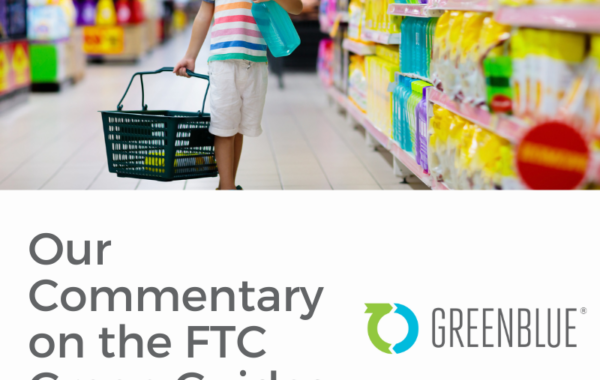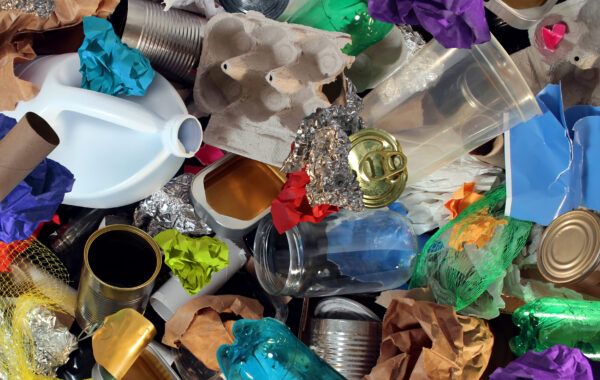February 4, 2021
One of the biggest misnomers about Google is its sole function as a search engine, but Mike Werner, lead for Circular Economy at Google was interviewed on: A Circular Google, during the SPC Winter Series to shed light on the vast reach of Google’s global sustainability team. Werner spoke about a plethora of initiatives spanning things like recyclability search tools, eliminating plastic from Google product packaging by 2025, and their efforts with additional organizations to uncover the economics of waste picking in Indonesia. Werner proclaimed Google as a great candidate for partnerships and collaboration, provided its large scale and technological abilities. Werner and his team work diligently to carve the pathway toward circularity through addressing material health, packaging, recycling infrastructure, and most importantly, optimism. Key highlights from the interview include how Google plans to eliminate plastic from its packaging, their global call to action, and tech’s role in building a circular economy within the next 5 years.
Google plans to eliminate plastic from its packaging by 2025. For Google, going plastic-free goes side by side with their other goal of making their packaging fully recyclable. To reach this goal, Werner and his team are following a process of: create, test, and implement. Google’s products include electronic devices (laptops, tablets, phones, etc.), smoke alarms, and even thermostats. All of these electronic devices require sturdy, protective packaging. When asked if the transition to plastic-free would be a moonshot, Werner optimistically responded describing the goal as more of a roofshot. Google already maintains a large portion of fiber-based packaging in their portfolio, so the transition away from plastic packaging currently looks a lot like finding fiber alternatives to replace shrink wrap, plastic tags, and polypropylene lined paper. Werner also mentioned that molded fiber has replaced many of their previous PET thermoforms. With the implementation of fiber alternatives, like molded fiber replacing many of the PET thermoforms, achieved within the first year of their pledge, it looks like Google is up for the challenge.
Beyond eliminating plastic from their own packaging, Werner identified three key areas for global improvement. First, is a call to better educate the consumer to know what can be and where to recycle. The second is highlighting the critical importance for the general public to understand why recycling is important and how it contributes to the health of our planet as a whole. And third, is to acknowledge the need for innovation and investment in our global recycling infrastructure.
To address the first point, Google teamed up with Earth911, a company that serves as a large recycling search database for anyone to use. Google and Earth911 made it possible to ask a Google Assistant device questions related to where to recycle over 350 materials. The Google device will respond with geolocated information about drop-off locations and a list of curbside accepted materials for the local area. While this is only applicable to Google Assistant devices, it is a good start in inspiring folks to look further into their municipal recycling systems to recycle more and recycle better.
The two other key areas for global improvement are primarily intervention points for big tech. Werner emphasized a project where Google used mapping technology to help Unilever locate waste banks in Indonesia. Informal waste picking in developing countries is a complex issue involving human rights, health concerns, economic stratification, and environmental harms. Google and Unilever set out to understand how to get more access to these informal businesses and provide greater access to waste pickers, in addition to pricing transparency. This project was intended to uncover and understand where waste goes. In order to invest in infrastructure, data around where and what infrastructure is needed first, and projects like this one in Indonesia can lead to success in the flow of materials.
As the Lead for Circular Economy, Mike Werner thinks big. Utilizing its scale and technological capabilities, Google can achieve a lot in the future and even more with partners. As the official technology partner with the Ellen MacArthur Foundation, Google has positioned itself as a key stakeholder in the transition to a more circular economy. Werner and his team don’t just focus on packaging, but toxicity and chemical assessments, infrastructure and recycling technologies, and even the policy implications to their work citing conversations with the United Nations around tackling plastic waste through international treaties. While Google continues to grow its scale and technologies there is hope more and more tech companies bring these critical issues to the forefront of their organization and help support the bridge to reach a more circular economy.





